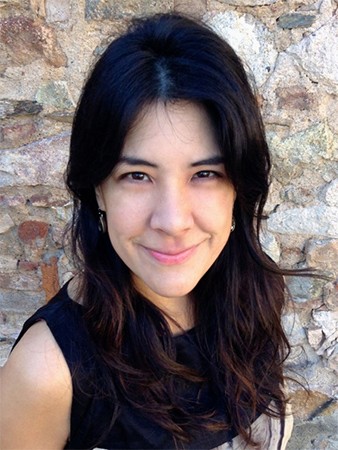Johns Hopkins University brain researcher Lisa Feigenson was one of four researchers honored today by the National Academy of Sciences in recognition of their extraordinary scientific achievements in neuroscience and psychological and cognitive sciences.

Image caption: Lisa Feigenson
Feigenson, a professor in the university's Department of Psychological and Brain Sciences, explores the fundamental processes of human cognition and memory by testing the limits on what infants and children are able to understand about numbers and the processes that underlie that understanding.
She joined Yael Niv, an assistant professor of psychology and neuroscience at Princeton University, in receive 2015 Troland Research Awards, two $75,000 awards given annually to recognize unusual achievement by young investigators and to further empirical research within the broad spectrum of experimental psychology. Feigenson was recognized "for her meticulous investigations of the origins and early development of representations of objects and numbers," NAS wrote in its announcement. "Her research on cognition in infancy illuminates the foundations of young children's mathematical reasoning and learning."
More from NAS:
Feigenson has shed light on many fundamental processes of human cognition and memory by teasing out the limits on what infants and children are able to understand about numbers and the processes that underlie that understanding. She demonstrated, for instance, that infants between 12 to 14 months of age can differentiate between one, two and three objects—but not four. Further experiments showed that the limit of three could be overcome by grouping objects in small sets, allowing infants to remember groups of up to eight objects. This is similar to what adults do to boost their memory, such as breaking up a phone number into three sets of digits. With such work, Feigenson and colleagues have illuminated some of the fundamental cognitive abilities that are in place early in life, which are subject to change as children learn through further experience.
Niv's work has focused on how the brain sorts information, effectively parsing complex environments into relevant, bite-sized chunks that can be acted upon efficiently.
Catherine G. Dulac, investigator at Howard Hughes Medical Institute and Higgins Professor of Molecular and Cellular Biology at Harvard University, received the Pradel Research Award, a $50,000 award presented annually to recognize mid-career neuroscientists whose work is making major contributions to our understanding of the nervous system.
Scott D. Sagan, Caroline S.G. Munro Professor of Political Science at Stanford University, received the William and Katherine Estes Award, which recognizes basic research in any field of cognitive or behavioral science that uses rigorous formal and empirical methods to advance our understanding of issues relating to the risk of nuclear war.
The National Academy of Sciences is a private, nonprofit institution that was established under a congressional charter signed by President Abraham Lincoln in 1863. It recognizes achievement in science by election to membership, and—with the National Academy of Engineering, Institute of Medicine, and National Research Council—provides science, engineering, and health policy advice to the federal government and other organizations.
Posted in Health, Science+Technology
Tagged brain science, lisa feigenson, number sense









